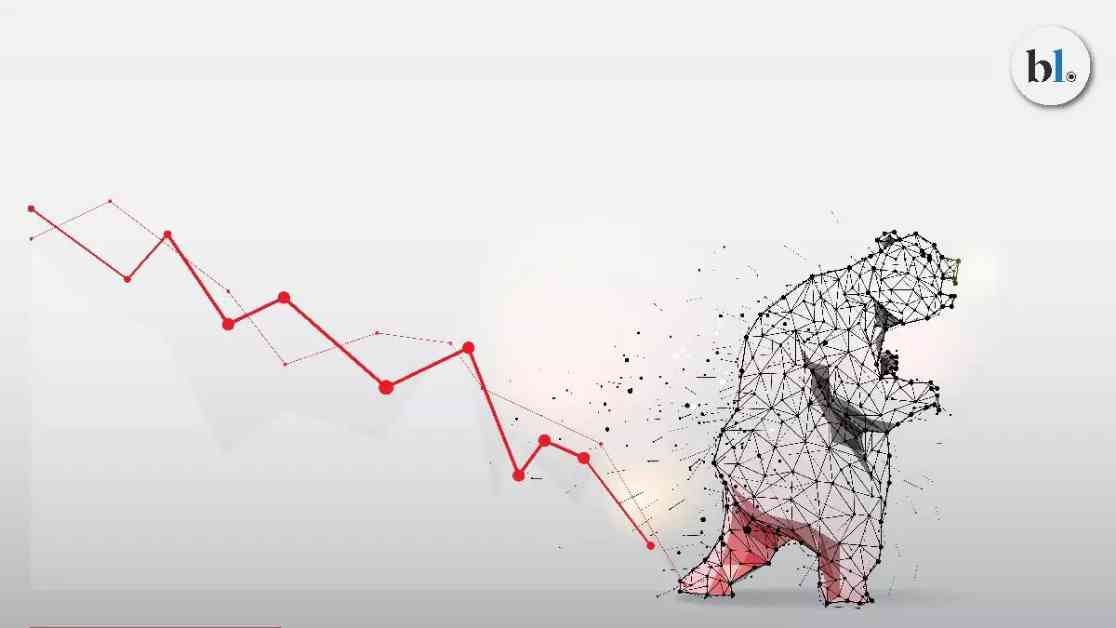Stock Market Plummets Amid Trade War Fears
In a dramatic turn of events, the benchmark stock indices Sensex and Nifty plummeted on Monday, sending shockwaves through the Indian financial market. The NSE Nifty saw a significant decline of 121.10 points or 0.52 per cent, closing at 23,361.05. Meanwhile, the 30-share BSE Sensex experienced a staggering drop of 319.22 points or 0.41 per cent, settling at 77,186.74. This sudden downturn marked the end of a five-day rally for the Sensex, sending traders and investors into a frenzy.
Global Concerns and Market Response
The downward spiral of the Indian stock market was attributed to weak global markets and mounting concerns over US President Donald Trump’s plans to impose tariffs on some of its trading partners. This move sparked fears of a potential trade war that could have far-reaching consequences for the global economy. Investors around the world were left reeling as markets in Asia, Europe, and the US all experienced deep cuts, reflecting the growing unease in the financial sector.
Expert Analysis and Insights
According to Prashanth Tapse, Senior VP of Research at Mehta Equities Ltd, the slump in global equity markets following Trump’s tariff announcements had a direct impact on Indian benchmarks. The uncertainty surrounding international trade relations, coupled with a sharp depreciation of the rupee, created a sense of pessimism among investors. Tapse highlighted the importance of monitoring foreign investor behavior, as their selling trends could further impact the market dynamics in the coming days.
Vinod Nair, Head of Research at Geojit Financial Services, emphasized the broader implications of the looming ‘Trade War’ on the global economy. He warned that tariff conflicts between the US and other nations could pose significant challenges and financial risks for the world at large. Nair’s insights shed light on the interconnected nature of the financial markets and the ripple effects of geopolitical decisions on international trade.
Market Volatility and Oil Prices
Against the backdrop of escalating trade tensions, the global oil benchmark Brent crude surged by 1.15 per cent to USD 76.50 a barrel. This spike in oil prices added another layer of complexity to the market dynamics, further contributing to the volatility and uncertainty surrounding the financial landscape. The intricate interplay between geopolitical events and economic indicators underscored the fragility of the global market ecosystem and the need for a cautious approach in navigating turbulent waters.
Closing Thoughts and Future Outlook
As the dust settled on a tumultuous trading day, the Indian stock market grappled with the fallout from the escalating trade war fears. The sharp decline in key indices served as a stark reminder of the interconnectedness of the global economy and the inherent risks associated with geopolitical instability. Moving forward, investors and analysts alike would be closely monitoring market trends, geopolitical developments, and economic indicators to gauge the trajectory of the financial markets in the weeks to come.
In light of these recent events, it is evident that the financial landscape remains fraught with uncertainties and challenges, requiring a delicate balance of prudence and agility in navigating the ever-evolving market dynamics. As investors brace themselves for potential headwinds and volatility, the need for a strategic and informed approach to investment decisions has never been more critical. Only time will tell how the global financial markets weather the storm of trade war fears and emerge stronger on the other side.























